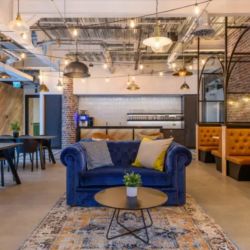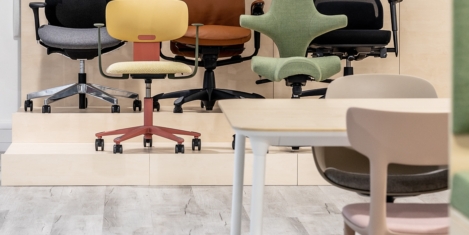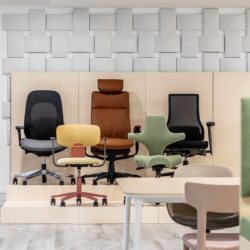November 16, 2023
Half of people say they are less productive in coworking spaces
 According to a new survey from software marketplace Capterra, 83 percent of UK coworking and other flexible office spaces are currently occupied. Companies say they are drawn to coworking spaces for cost reductions (38 percent), flexibility (30 percent), and shared amenities (27 percent). However around 53 percent of people who work in flex space say they are less productive in such spaces, 35 percent of respondents appreciate the collaborative atmosphere and the locations and facilities these spaces can provide and 38 percent say they are concerned about confidentiality and privacy. (more…)
According to a new survey from software marketplace Capterra, 83 percent of UK coworking and other flexible office spaces are currently occupied. Companies say they are drawn to coworking spaces for cost reductions (38 percent), flexibility (30 percent), and shared amenities (27 percent). However around 53 percent of people who work in flex space say they are less productive in such spaces, 35 percent of respondents appreciate the collaborative atmosphere and the locations and facilities these spaces can provide and 38 percent say they are concerned about confidentiality and privacy. (more…)








 Office workers now spend more time in the office, with the average creeping up to three and a half days per week compared to
Office workers now spend more time in the office, with the average creeping up to three and a half days per week compared to 
 For many people, a large portion of the day is spent at the workplace. In fact, the average person will spend 90,000 hours at work over a lifetime. The Covid-19 pandemic saw the typical ‘workplace’ setting change for many people, after businesses around the globe were forced to adjust to a ‘work-from-home’ model. Now, three years later, we are starting to see more employees return to the office, with large corporations including JPMorgan, Chase, Apple and Google all announcing plans to bring their workers back to base.
For many people, a large portion of the day is spent at the workplace. In fact, the average person will spend 90,000 hours at work over a lifetime. The Covid-19 pandemic saw the typical ‘workplace’ setting change for many people, after businesses around the globe were forced to adjust to a ‘work-from-home’ model. Now, three years later, we are starting to see more employees return to the office, with large corporations including JPMorgan, Chase, Apple and Google all announcing plans to bring their workers back to base. 
























November 14, 2023
No one shouted stop, although we all should have seen it coming
by Chris Kane • Comment, Everything Omni, Facilities management, Property, Workplace design